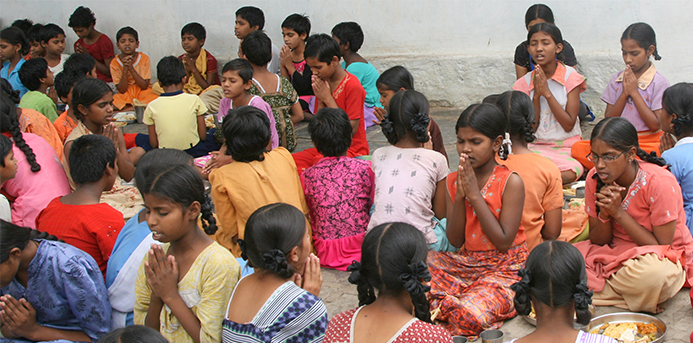Many people think sex trafficking is a crime that occurs in far-flung areas of the world. In fact, it’s a domestic and even local issue, and one that is on the rise as commercialized sex increases, particularly in affluent populations.
With an increasing amount of sex purchased online, the sex trafficking industry is fueled by demand, mostly from men, that exceeds the number of victims of sexual exploitation, according to experts. This means those being exploited are engaging in numerous sexual interactions every day to meet the demand. And to be sure, it’s happening in our neighborhoods.
Two local organizations are determined to bring to light the struggles women face around the globe, and the ways in which local organizations are empowering women and girls to change their lives. Starting Sept. 25 and running through Jan. 22, 2017, the Illinois Holocaust Museum and Education Center and the YWCA Evanston/North Shore will jointly present Women Hold Up Half the Sky, an exhibition based on a book by the same name written by Pulitzer Prize-winning authors Nicholas Kristof and Sheryl WuDunn.
“What’s lovely about what the museum and YWCA have done is they’ve created something that puts a face on the continued existence of gender inequality and violence in a local community,” says Kaethe Morris Hoffer, executive director of the Chicago Alliance Against Sexual Exploitation (CAASE), an organization dedicated to eradicating sexual exploitation through prevention, policy reform, community engagement and legal services.
Visitors to the exhibition, which will be held at the Illinois Holocaust Museum in Skokie, will view an array of multimedia presentations, such as textiles, photographs and artistic renderings, and will be asked to consider three pressing women’s issues: maternal health and mortality, human trafficking and gender-based violence.
The book that inspired the exhibit focuses largely on the exploitation of women and girls in Asia and Africa, and the ways in which aid groups and individuals can help the oppressed transform their lives.
The partnership between the museum and the YWCA was a “natural one,” and the second time the organizations will collaborate on an exhibition addressing inequality, says Kristen White, YWCA chief operating officer. The Holocaust Museum’s efforts include delving into broad human rights issues, and the YWCA’s mission, in part, is to empower women and eliminate racism. This particular exhibit began at the Skirball Cultural Center in Los Angeles, and was recreated by the Holocaust Museum’s curator to bridge for viewers the macro issues and what’s happening in their own communities.
“We want the audience to feel empowered to make a difference in their communities,” says Shoshana Buchholz-Miller, vice president of education and exhibitions at the Illinois Holocaust Museum. “And we want people to understand there’s a local component to this, and probably in close proximity to where [exhibition visitors] are living.”
For its part, CAASE has created two panels for the exhibit. The first will discuss CAASE’s mission and the work it does in Illinois. The second panel will feature a photograph and the heroic story of Brenda Myers-Powell, who was pimped out as a young teenager in Chicago and subjected to abusive treatment by profiteers and customers for two decades. Myers-Powell survived and now, through her organization The Dreamcatcher Foundation, fights to end human trafficking and liberate women and girls from the sex trade.
In fact, CAASE worked to help secure the passage of the 2011 Justice for Victims of Sex Trafficking Crimes Act (JVST) in Illinois, which offers survivors of human trafficking the opportunity to have prostitution convictions removed from their records. Brenda Myers-Powell was the first adult woman for whom CAASE was able to secure a vacation, the equivalent of finding someone not guilty, for prior convictions.
“It’s our contention that a totally inappropriate response to prostitution is to treat (prostitutes) as criminals because what we know is that women and men in prostitution are there because they don’t have other means of surviving,” Morris Hoffer says.
The culmination of the exhibit is a call to action with a station at the end of the exhibit offering attendees opportunities to learn, share, give and advocate. For example, there will be a list of products local women’s shelters need; and also postcards people can send to their Congressional representatives advocating for passage of the Safe Act, which would allow women victimized by domestic violence to take time off work to meet with attorneys and attend court hearings without being penalized.
“We encourage people to be what we call ‘upstanders’: people who will take action in the face of issues that are important to them,” Buchholz says. “When we look at the challenges facing women and girls and how they can be overcome, it is important for us to invest in that because when women and girls are healthy and contributing and educated, then whole communities benefit.”
EverThrive Illinois and the YWCA also have features in the exhibition.
For more information about the exhibition, and to learn more about the complementary programing that will run throughout the duration of the exhibition, visit ilholocaustmuseum.org/standup4women.
More from Make It Better:

